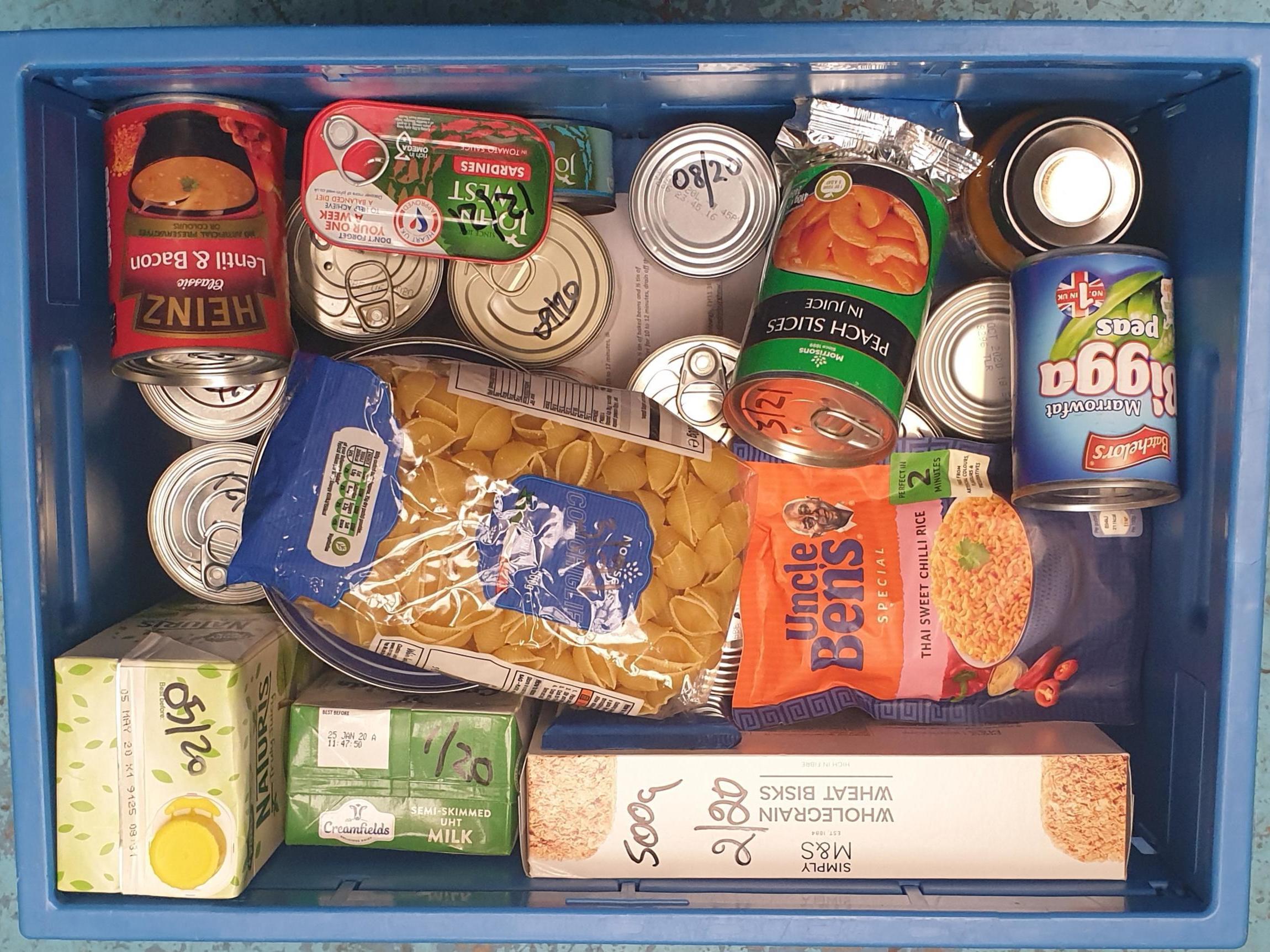Edinburgh food bank users ‘on brink of starvation as supplies run low amid soaring demand’
Benefit payment delays one of most common reasons why food banks are only choice

Your support helps us to tell the story
From reproductive rights to climate change to Big Tech, The Independent is on the ground when the story is developing. Whether it's investigating the financials of Elon Musk's pro-Trump PAC or producing our latest documentary, 'The A Word', which shines a light on the American women fighting for reproductive rights, we know how important it is to parse out the facts from the messaging.
At such a critical moment in US history, we need reporters on the ground. Your donation allows us to keep sending journalists to speak to both sides of the story.
The Independent is trusted by Americans across the entire political spectrum. And unlike many other quality news outlets, we choose not to lock Americans out of our reporting and analysis with paywalls. We believe quality journalism should be available to everyone, paid for by those who can afford it.
Your support makes all the difference.People in deprived parts of Edinburgh are facing the threat of starvation as supplies at food banks across the city run “critically low”, a charity has warned.
The Edinburgh Food Project, which operates seven food bank centres across north, west, central and eastern parts of the Scottish capital, said it needed urgent donations of tinned vegetables, cereal, rice, pasta sauce, coffee, juice and biscuits, among other items.
The charity, part of the Trussell Trust Food Bank network, said it only had enough food for this week, and may not be be able to supply people with complete food parcels beyond that point.
Operations manager Bethany Biggar told The Independent donations of food were not sufficient to meet rising demand.
She said: “Until we have a benefits systems that’s caring, compassionate and supportive, a minimum wage covering the essentials, and a workforce that is reliable and secure, we will continue to support those who need us. We will not allow people in Edinburgh to starve.”
She added the charity had no choice but to depend on the “generous support of the public” and without this, it “simply would not be able to help people living in poverty”.
Ms Biggar said the charity had so far helped 11,402 people over the last 12 months, a 19 per cent rise on the year before.
She said there had also been 4,530 food parcel requests between January and April this year – 47 per cent up on the same period last year.
She said 25 per cent of people (3237) helped by the charity experienced changes to benefits and delays to benefit payments, and this was one of the most common reasons for their dependence on food banks. But at almost 53 per cent (6002 people), low income was the most common reason, while others included homelessness, debt, sickness and domestic violence.
One of the cases recorded by the charity involved a mother-of-two whose housing benefit was cancelled because her elderly parent was living with her until she was moved to a care home.
The woman’s application for housing benefit was denied when she applied again, which meant she had to depend on credit cards to survive until she could no longer afford to purchase food.
Food parcels are made up of three daily meals and cover three days of supplies.
But Ms Biggar said if the charity does not succeed in increasing stock levels now, its food parcels will be unable to meet that standard, which is why it is running an urgent appeal for public donations.
She said the charity had received £4,800 in grant funding from the Scottish government to purchase fresh food, which was “just enough” to cover two of its food banks in Pilton and Craigmillar.
Recipients of food parcels are entitled to collect food from the charity up to three times in six months.
They are often referred to it by one of 230 different government agencies and charities – including council services, mental health, debt agency support and the NHS.
A spokesperson from the Department for Work and Pensions told The Independent: “There are many reasons people use food banks and it cannot be linked to one cause. The vast majority of people are paid their benefits on time and Universal Credit is available to claimants on day one.
“Wage growth is outstripping inflation and more people are in work than ever before with the vast majority of jobs since 2010 in full time, permanent and in high skilled role, which come with higher pay.”
Join our commenting forum
Join thought-provoking conversations, follow other Independent readers and see their replies
0Comments